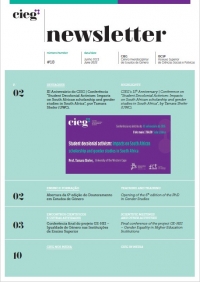In 2013, the research project Women, Disability and Human Rights in the Middle East (2012-2013) (project budget: 19.600€), was undertaken in collaboration with CAPP/ISCSP and York University (Toronto, Canada). This research involved training 12 women with disabilities from five countries - Egypt, Sudan, Yemen, Jordan and the Palestinian Territories – to carry on a study on their rights through the collection and analysis of key legislation and policies on three areas (violence against women, access to justice and political participation), as well as the elaboration of a report based on these data and on a desk-based research.
From this research a report was issued, drawing from information collected through the DRPI Law and Policy Monitoring Template. This assessment tool had been developed to collect, evaluate, report and track information about protections of the rights of persons with disabilities found in national laws, policies and programs, using the principles and rights established in the Convention on the Rights of Persons with Disabilities (CRPD) and other international human rights instruments as benchmarks.
In the Women, Disability and Human Rights in the Middle East (2012-2013), the DRPI Template was adapted in order to give it a more clear gender focus. Therefore, the tool guided monitors in their work to identify the extent to which national legislative and policy frameworks protected and promoted the human rights of women with disabilities. Through a series of questions and research guidelines, the Template measured both the laws and the programs on the books as well as the degree to which women with disabilities enjoy their rights in practice.
Funded by the international organization Stars of Hopeand developed in collaboration with Disability Rights Promotion International (DRPI), the team included: Paula Campos Pinto (coord.) and Diana Teixeira (research assistant).

